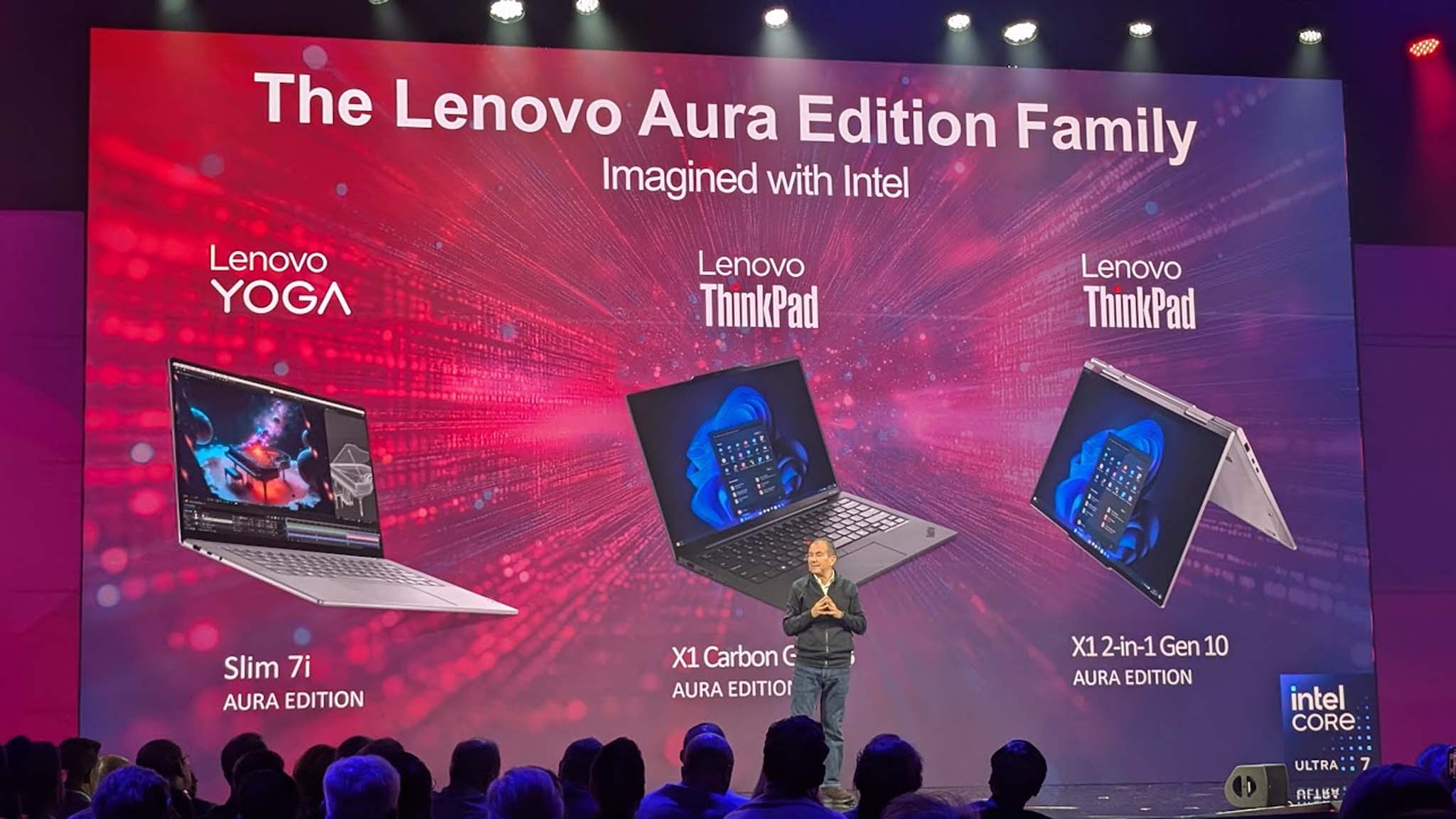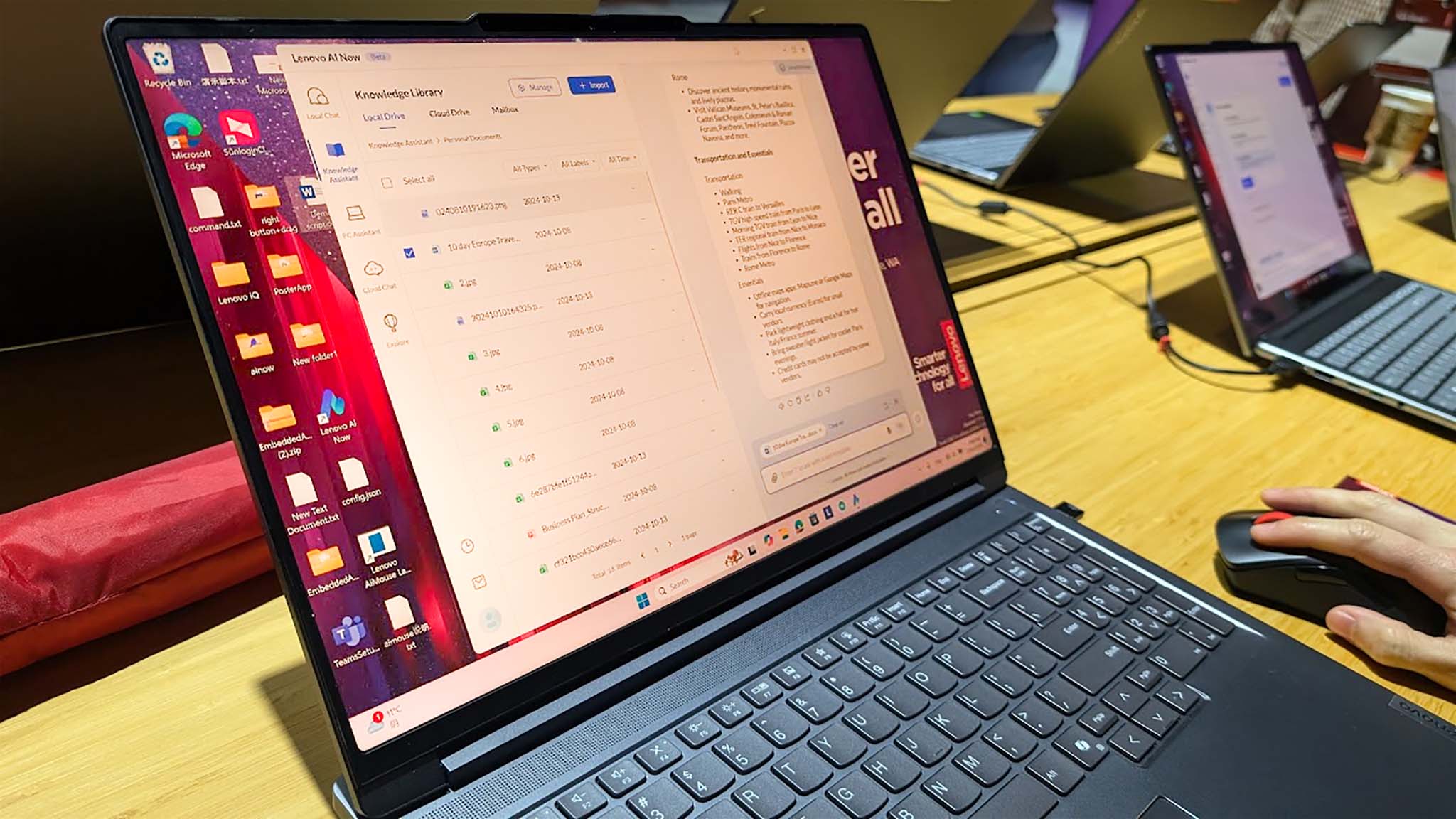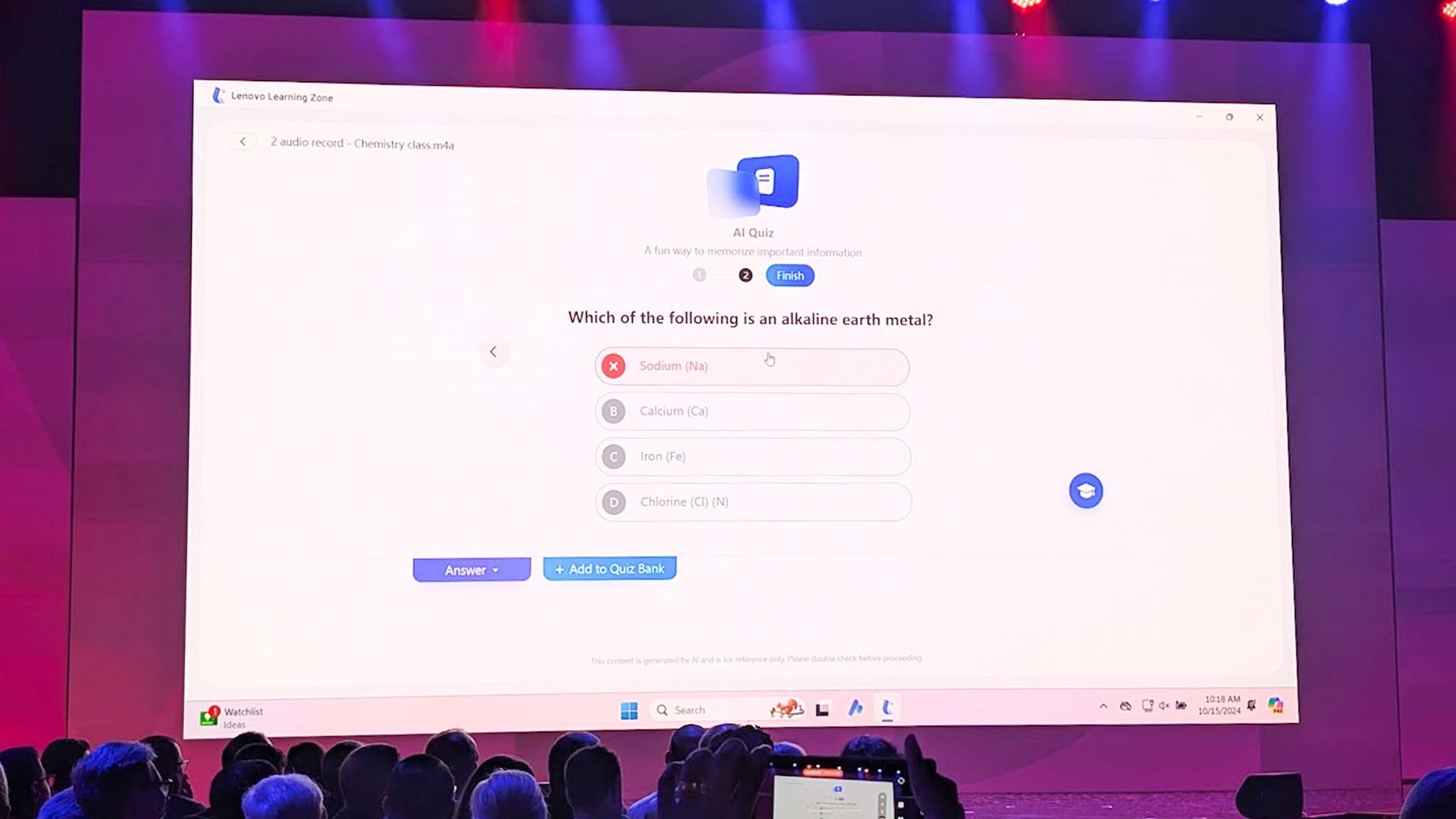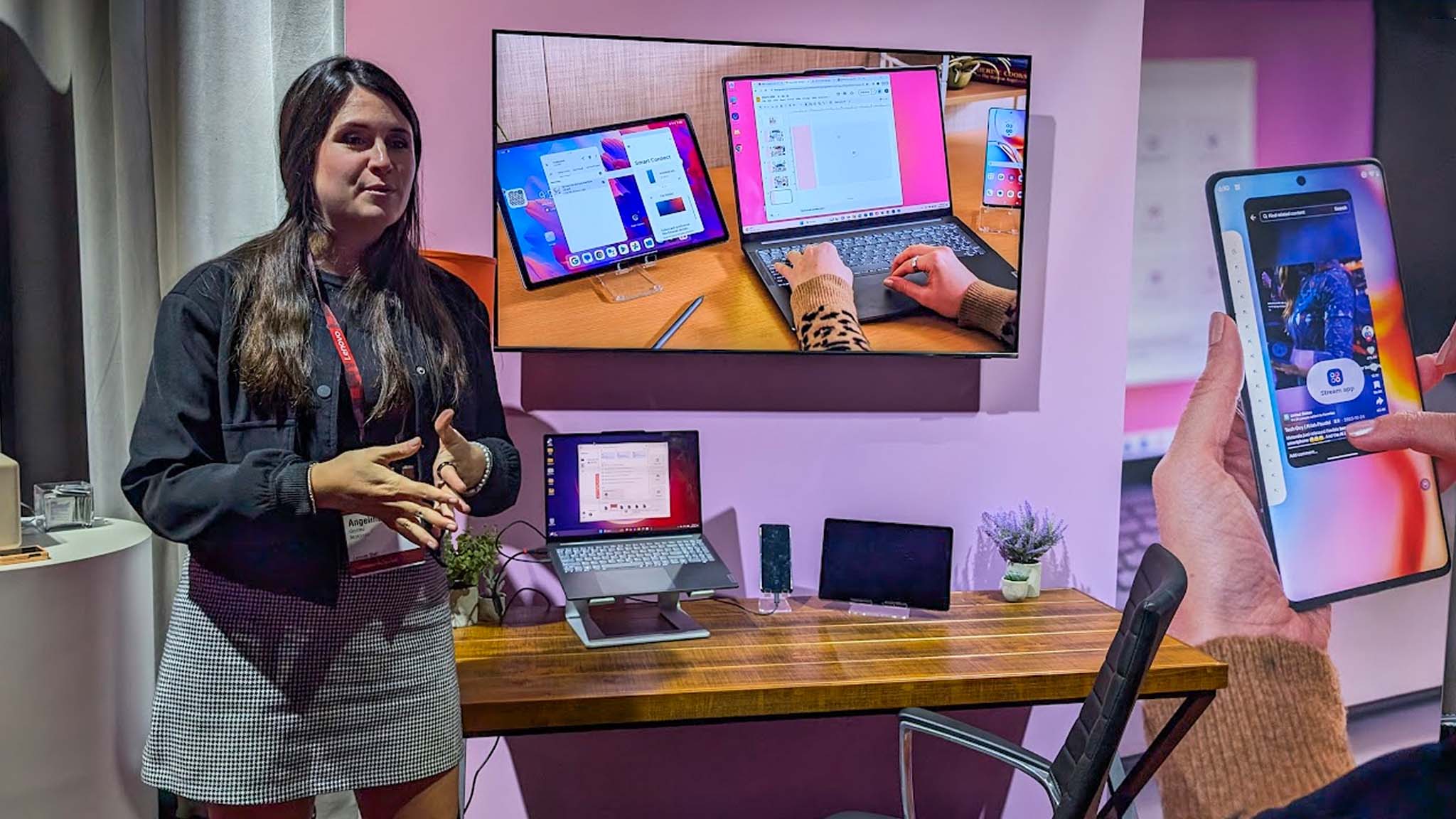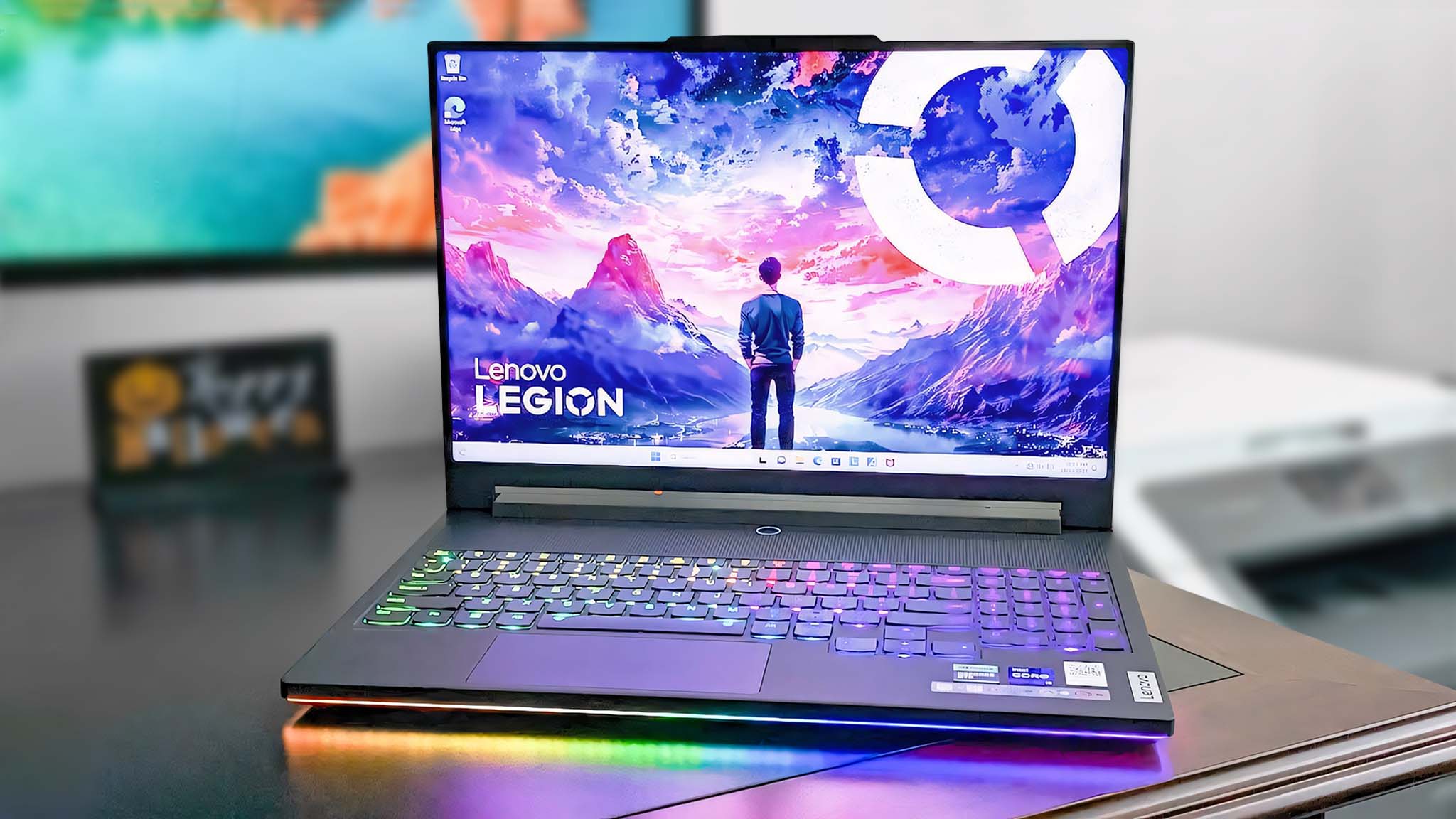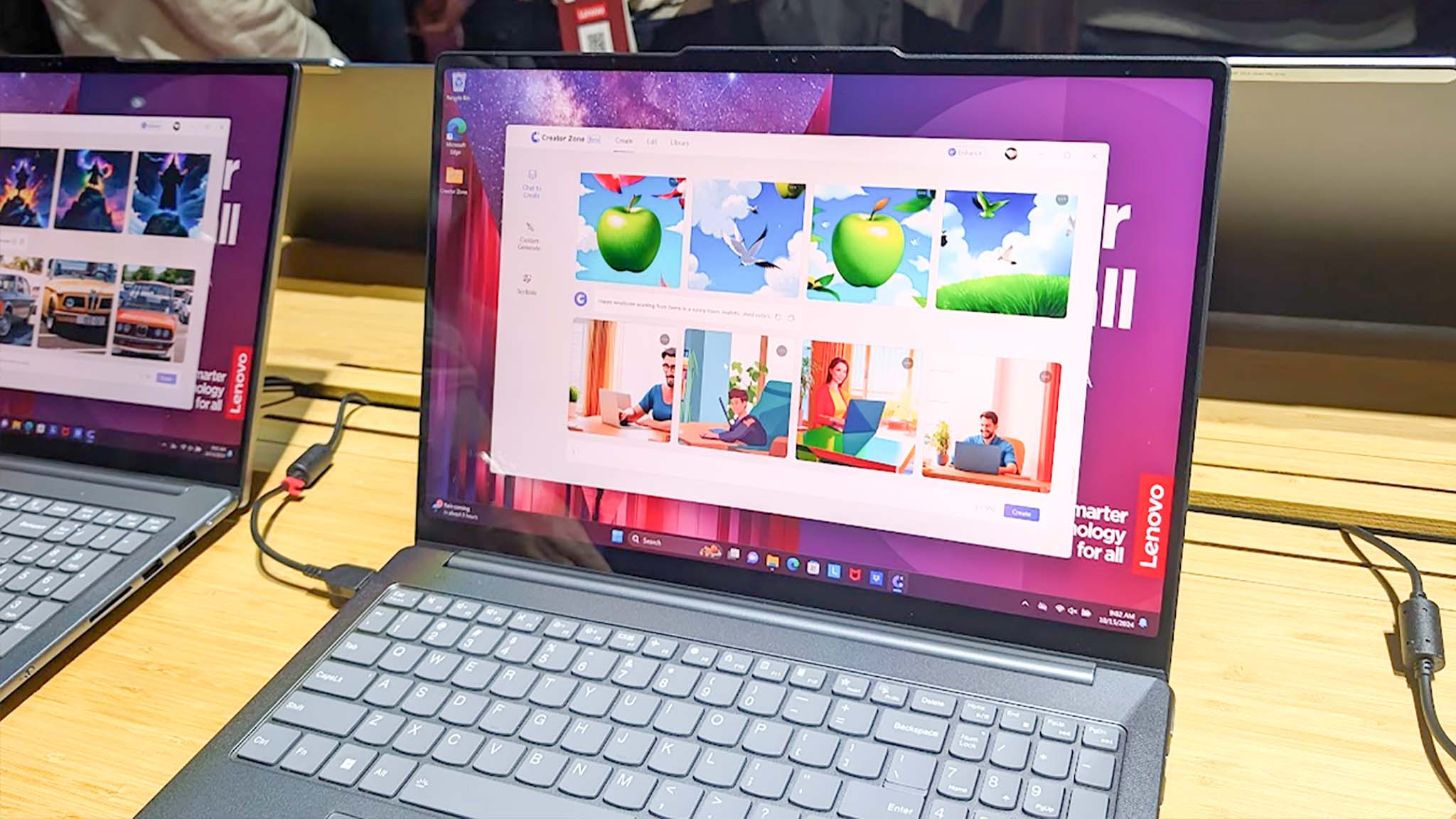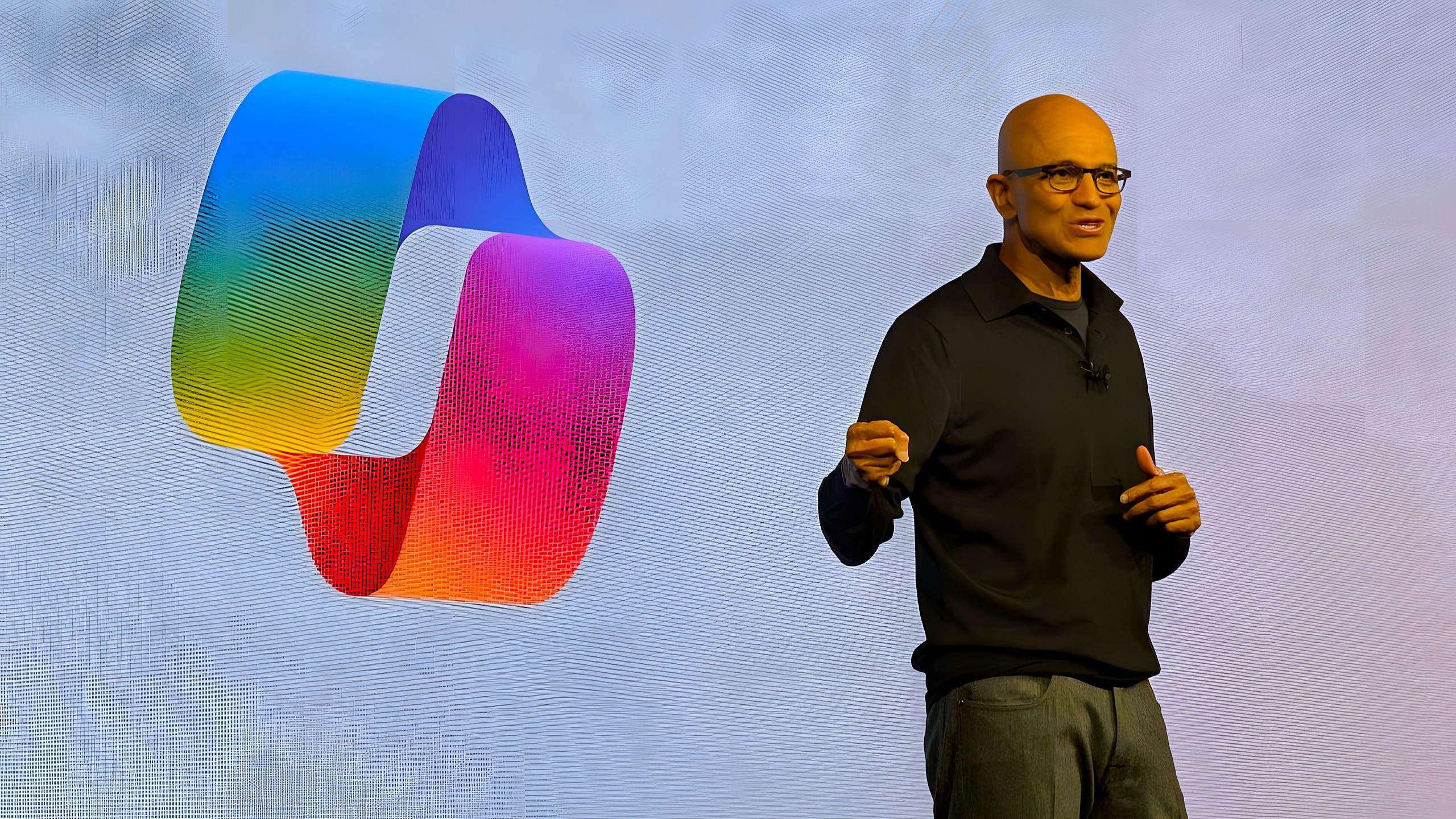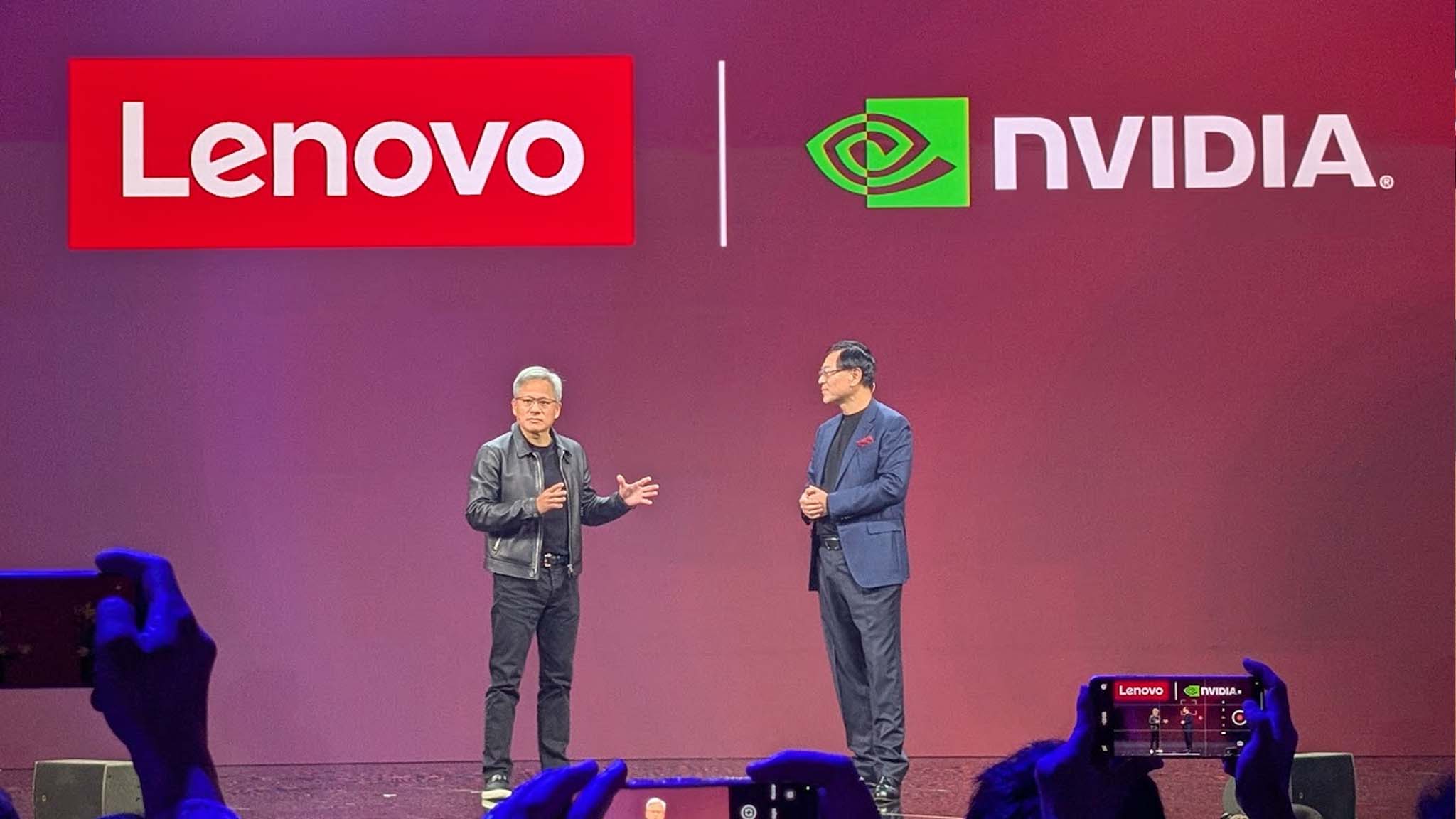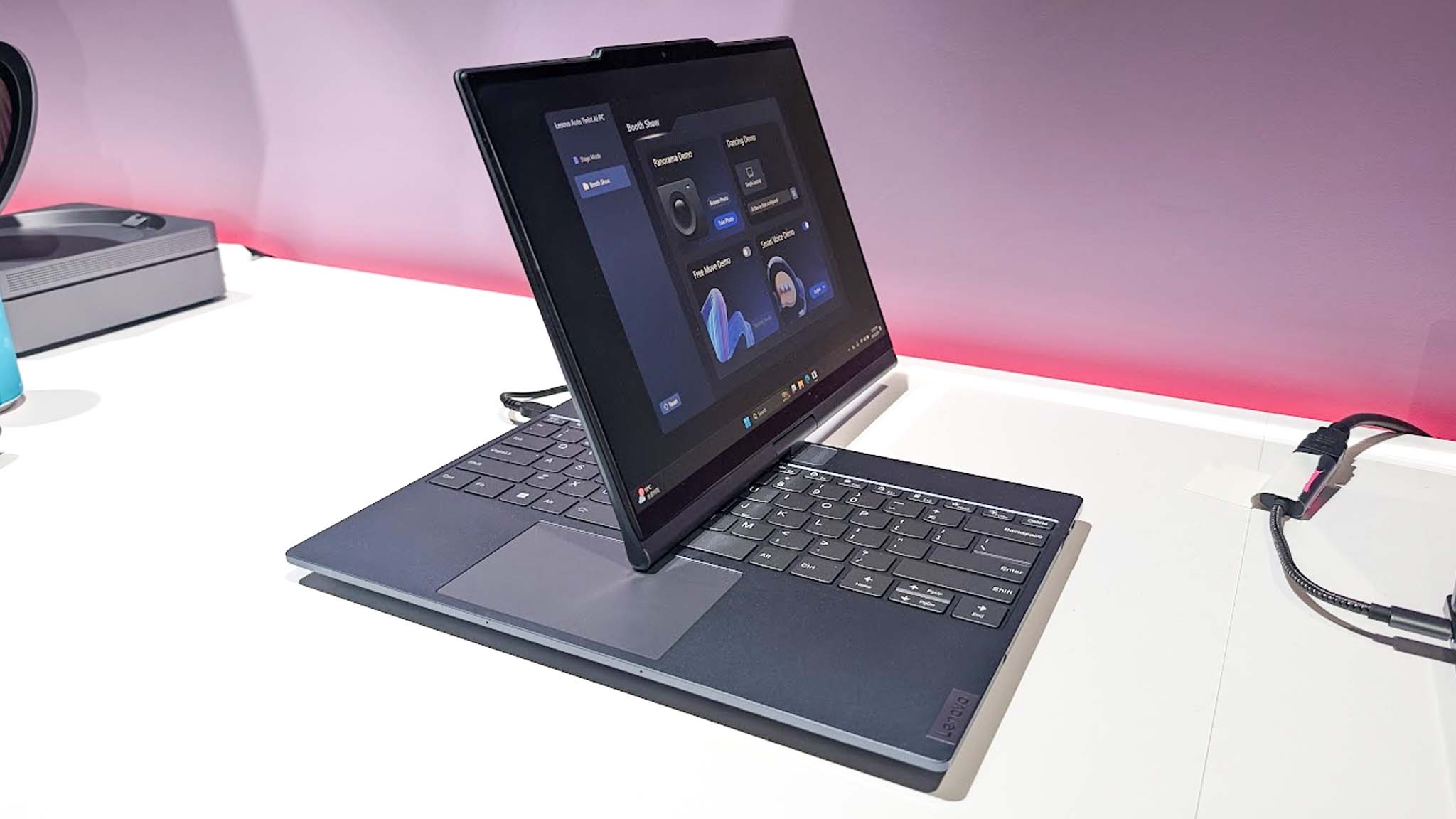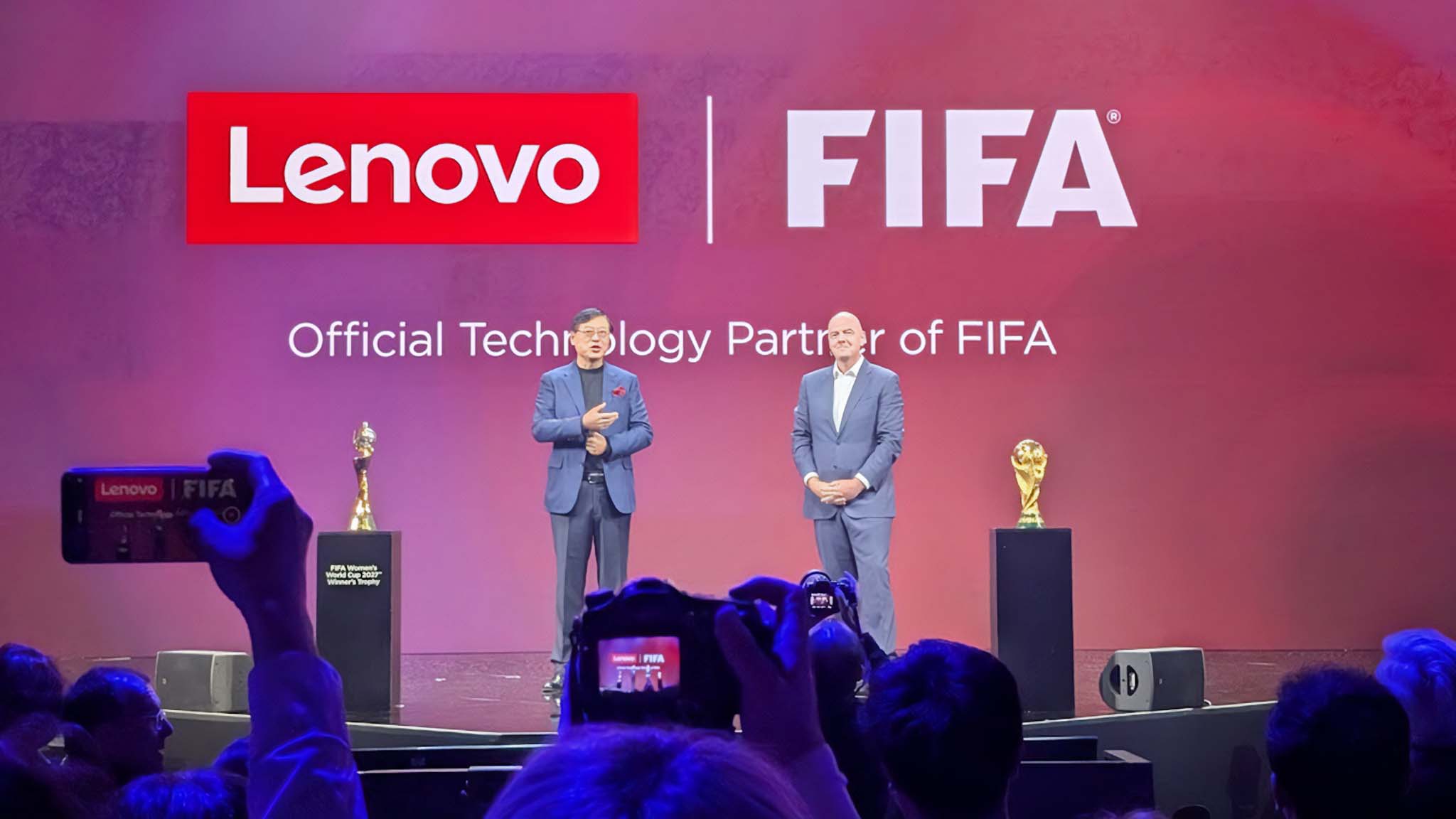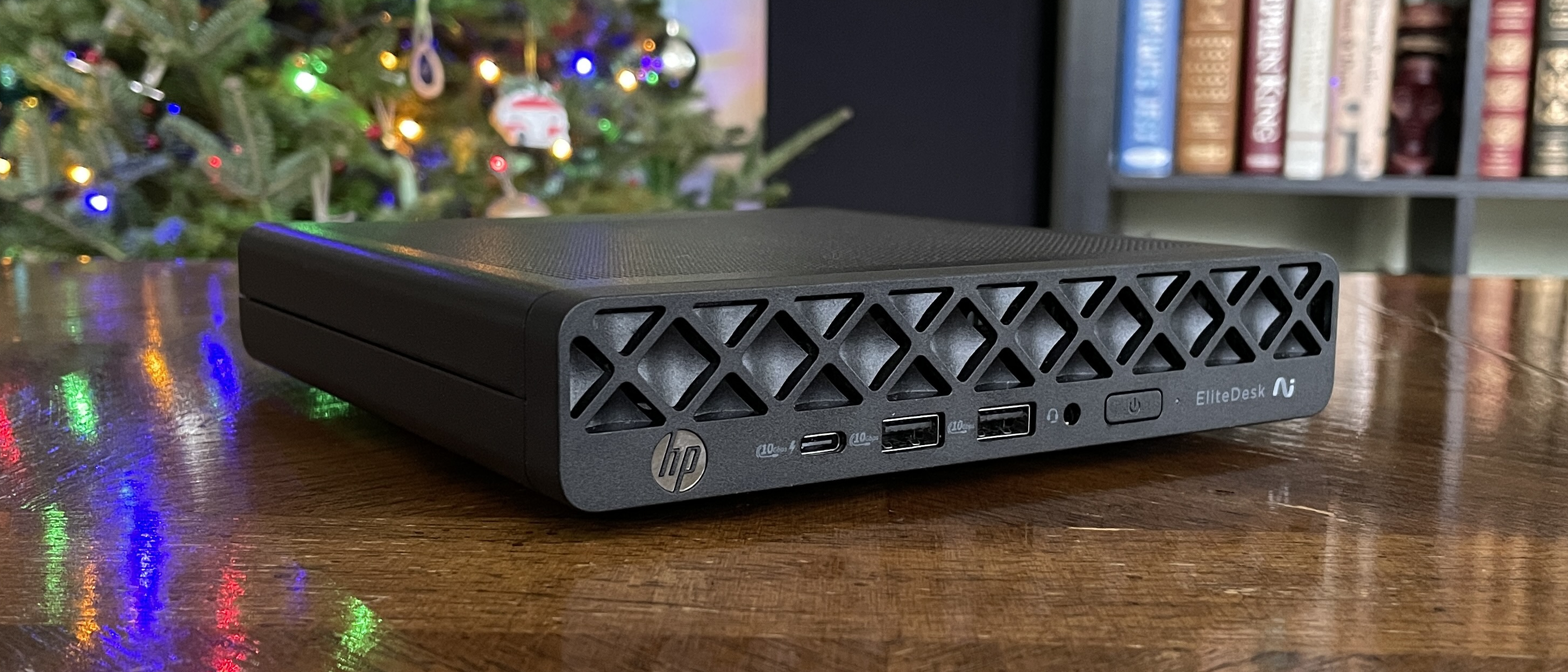"Either you use the latest technology and tools, or you fall behind." Discussing AI security with the world's biggest PC maker.
After attending Lenovo Tech World 2024, I spoke with Daryl Cromer of Lenovo about the future of AI and what the company is doing to keep users safe.
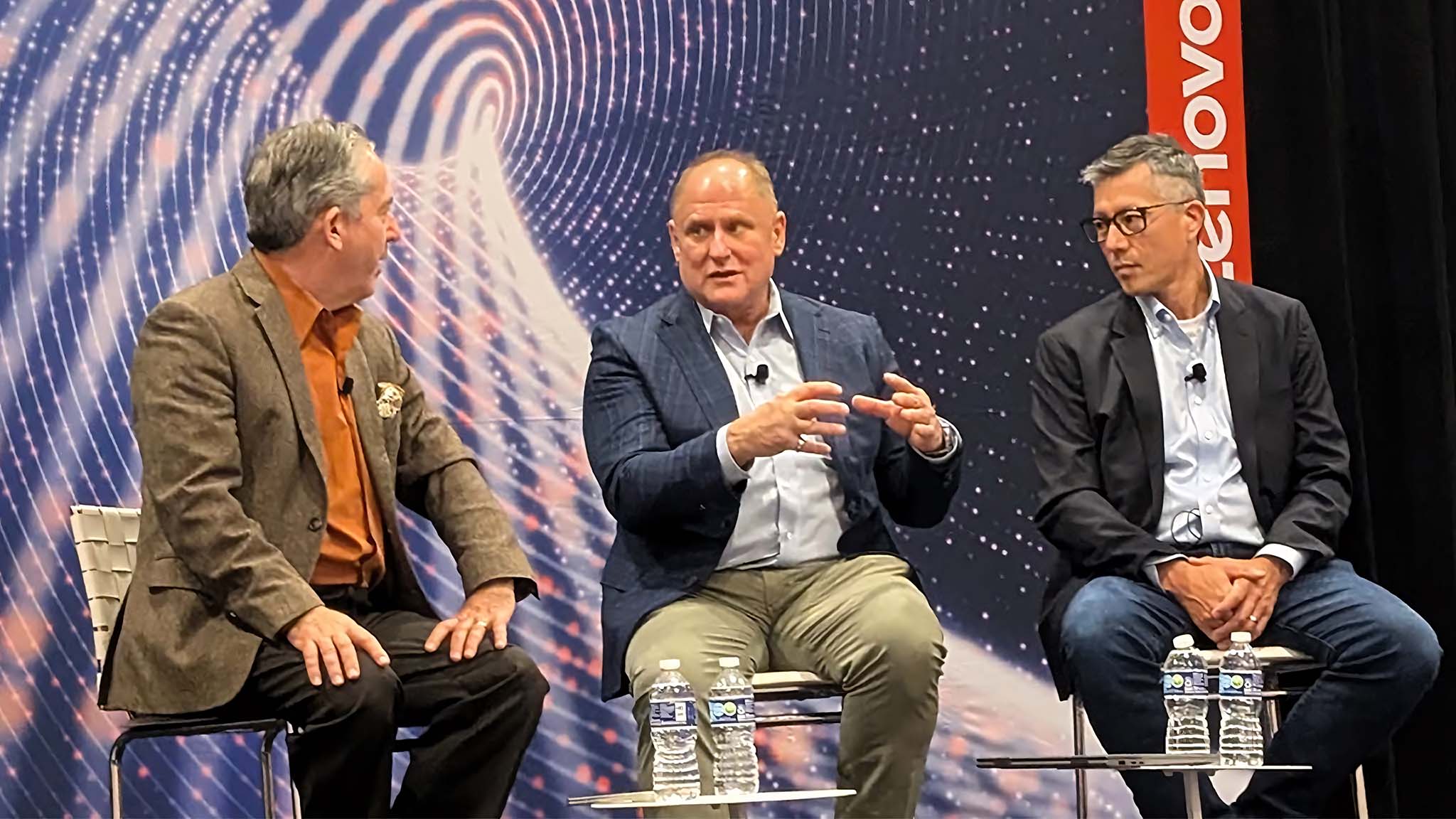

Last week, I attended the Lenovo Tech World 2024 conference in Bellevue, Washington, alongside hundreds of other attendees in the tech industry.
I spoke with Lenovo's Daryl Cromer about local AI features coming to AI PCs in the near future. Look for the TL;DR sections on this page to get quick recaps of our discussion.
The main focus of this year's event, unsurprisingly, was artificial intelligence (AI). You know, that big ubiquitous topic that seems to be everywhere these days. As part of this focus, I got to see Lenovo's new AI Agents demonstrated on the upcoming Aura Edition AI PC laptops.
After the event, I had the opportunity to speak more in-depth with Lenovo's Daryl Cromer, CTO of PCs and Smart Devices, about the latest AI capabilities, the future of AI devices, and what the company is doing to keep users safe.
This interview has been condensed and edited for clarity.
An upcoming AI PC laptop and Agentic AI shown off at Lenovo Tech World 2024
Before diving into the interview, I'll quickly recount what happened at the multi-day Lenovo Tech World 2024, which focused on "Smarter AI for all." During keynotes, attendees heard from tech CEOs across the industry, including Jensen Huang of NVIDIA, Pat Gelsinger of Intel, Lisa Wu of AMD, Yuanqing Yang "YY" of Lenovo, and more.
• World tech leaders spoke
• Lenovo revealed new AI PCs
• Intel and AMD x86 collaboration
• New Panther Lake chip reveal
• Lenovo demoed new AI Agents
• Motorola's moto ai was demoed
• Other AI technologies displayed
• Various panels discussed AI
It was during the first keynote that Intel and AMD discussed the forming of the x86 Ecosystem Advisory Group, and Intel showed off its new Panther Lake chip. There was also a show floor demonstrating Lenovo and Motorola's latest AI advances for consumers. Finally, several panels discussed various aspects of AI.
On the show floor, attendees got to see Lenovo and Motorola's latest AI technologies in action. Arguably, the most interesting things shown at Lenovo Tech World 24 were the upcoming AI Agents — AI NOW, Learning Zone, and Creator Zone, which all run locally on a computer (rather than on a distant server) to provide more personalized (and private) assistance.
During a demonstration, I was shown how someone can use Lenovo AI NOW to select specific files on a laptop and then have the AI agent create a helpful summary or even a brochure based on the information found within those selected documents. Meanwhile, Learning Zone was used to create a helpful multiple-choice test based on school documents that it analyzed. Finally, Creator Zone is an AI image generator that generates visuals based on text prompts. These AI Agents were used with and without access to the internet to demonstrate that they truly could operate locally on a laptop. We'll be seeing these AI Agents roll out to Lenovo AI PCs in the coming months.
All the latest news, reviews, and guides for Windows and Xbox diehards.
On the phone side of things, Motorola's moto ai proof of concept demos showed how Large Action Models (LAMs) can learn from your usual behaviors with the phone to offer personalized assistance. For instance, if someone searches Google for "coffee shops near me," moto ai might suggest placing an order at the nearest Starbucks for you based on your previous ordering habits. It was hinted that this sort of personalized AI capabilities would come to AI PCs down the road as well.
With all that explained, let's get on to the interview.

Rebecca has tested and reviewed dozens of laptops and PCs over the years, including many of the latest AI PCs. She's seen firsthand how these new NPU-toting (neural processing unit) devices can improve computer task flows and efficiency. If you want to learn more about AI PCs, you can read her NPU guide or her Copilot+ PC guide.
🎃The best early Black Friday deals🦃
- 🎮Lenovo Legion Go (512GB) | $499.99 at Best Buy (Save $200!)
- 🖥️ABS Cyclone Desktop (RTX 4060) | $1,099.99 at Newegg (Save $400!)
- 💻ASUS ROG Zephyrus G14 (RTX 4060) | $1,249.99 at Best Buy (Save $350!)
- 📺HP Omen 27qs (QHD, 240Hz) | $349.99 at Best Buy (Save $80!)
- 💻Samsung Galaxy Book4 Edge (X Elite) | $849.99 at Best Buy (Save $500!)
- 🔊2.1ch Soundbar for TVs & Monitors | $44.99 at Walmart (Save $55!)
- 🎧Sennheiser Momentum 4 ANC | $229.95 at Amazon (Save $170!)
- 📺LG C4 OLED 4K TV (42-inches) | $999.99 at Best Buy (Save $400!)
Local AI Agents signal a major shift for consumers and the industry is going to evolve rapidly
While speaking with Cromer, I referenced the Lenovo AI NOW, Learning Zone, and Creator Zone demonstrations shown on the show floor and then asked him, "why is this shift to local AI Agents on PC such a big deal for the average consumer?"
• Improves privacy and security
• Eliminates distant AI fees
• Easy summarization of local files
• Reduces video game latency
• Allows local content creation
• Provides personalized assistance
• Reduces power used on devices
• Assists with grammar
• Helps with coding
• Explains concepts
• Offers suggestions
To this, Cromer replied, "Well, there's a short-term answer and a long-term answer." He then went on to explain several areas that local AI Agents will benefit, but he also clarified, "There's an answer today, there'll be additional answers in the future" as things continue to progress and change.
First off, Cromer explained how local AI provides better security and privacy compared to online AI services. "...Whatever you share to the cloud, it is shared to the world," Cromer said. "You know, it's just kind of that whole notion of once it goes out of your control, learnings or capabilities or insights will be mined from that." Not to mention, being able to use AI agents locally reduces the "tolls" and fees you might have to pay to access AI services on distant servers. "It can start becoming rather expensive," he said.
He further explained that local AI agents allow for easy summarization of files and documents on your computer, as demonstrated with Lenovo AI Now. When it comes to content creation, local AI allows for more convenient real-time generative AI, as shown in Lenovo Creator Zone, "without having to deal with the network latencies, charges, et cetera."
"So this path that we're on, we need to think of it as we're in year one of the smartphone, and it's going to expand, evolve over the next decade, and every couple years, we'll look back and go, 'I just cannot believe how far we moved,' because the technology is going to move forward very rapidly."
Daryl Cromer
Reflecting on the AI PC industry as a whole, Cromer stated, "So this path that we're on, we need to think of it as we're in year one of the smartphone, and it's going to expand, evolve over the next decade, and every couple years we'll look back and go, 'I just cannot believe how far we moved,' because the technology is going to move forward very rapidly." That's no understatement.
When I remarked on this smartphone analogy, Cromer clarified, "The significant difference of the smartphone model [compared to AI] is the rate of change goes up dramatically with new technology... So what it took us a decade to do with that phone will be done in half the time or less. So, they'll assume that, oh, well, you have lots of time. We are in warp speed."
As we've seen with the progress of OpenAI's ChatGPT and various OEM's (original equipment manufacturer) AI PCs, the progress of these devices and language models has been staggering over the last few years, and it's only going to increase from here.
"If you think about what generative AI can do for a consumer, it can limit your limitations."
Daryl Cromer
As we continued to talk, the conversation turned to how AI can assist people in their work, school, or personal lives, not as a replacement for people but as a useful tool for people to use. "If you think about what generative AI can do for a consumer, it can limit your limitations," Cromer said. "...If you're having trouble understanding a concept, it can give you a view that's based off your limitation to help you understand it for tutoring."
He then shared that he isn't very good at spelling, but AI can help him write words accurately. Similarly, AI can help coders solve problems with pieces of code. He clarifies, "You cannot necessarily use [the AI generated code], you have to take the code to modify and understand if that gives you that breakthrough."
Lenovo Smart Connect lets consumers seamlessly work across their PCs, tablets, and phones
Since we were on the topic of AI capabilites and conveniences, I asked Cromer, "In your opinion, what are some of the most exciting AI-driven features currently available on and/or coming soon to Lenovo PCs?"
Cromer responded that Smart Connect is a product that he has been very excited about. For those who might not know, this is something that was revealed earlier in February 2024 but was also showcased on the show floor at Lenovo Tech World.
• Allows cross-device navigation
• Sync notifications across devices
• Swipe apps to different devices
• Copy and paste between devices
• Create instant hotspots
• Use your phone as a webcam
• Share files between devices
In Lenovo's own words, this is "a software solution that unifies digital ecosystems to create a multi-device experience" and "eliminates disruptions when transitioning between devices." In other words, it allows users to seamlessly connect their phones, tablets, and PCs together. With this bridge, you can do things like quickly display a video found on your phone on your laptop (and vice versa), control your phone with your PC's mouse and keyboard, create a smart clipboard so you can copy and paste between devices, turn your smartphone into a webcam for your PC, and more.
Getting further into the mindset behind Smart Connect, Cromer explained, "Your phone sees you in one light, your PC sees you in another light, a tablet in another light," and then Smart Connect "bridges together, building out that ecosystem." It sounds extremely convenient.
Local AI will improve video games too
At one point, Cromer brought up how AI can improve video games, and since I am personally very interested in them, I asked, "What AI-driven features can we expect to see in Lenovo’s future gaming PCs and gaming handhelds, like the Legion Go?"
• Easy rendering from 2D to 3D
• Reduced latency
• Sharper imagery
• More realistic experiences
"Well, if it's in the future, I'm not really able to speculate on it," he chuckled. "However, I will say within the gaming space, one of the significant breakthroughs with generative AI is the ability to go render from 2D to 3D very effectively, very easily." He explained how 3D displays that don't require glasses could "significantly change the experience." He further stated, "...although not necessarily massive use cases... we are going to see a major leap in the ability to provide more realistic experiences on [gaming] devices."
"...We are going to see a major leap in the ability to provide more realistic experiences on [gaming] devices."
Daryl Cromer
He explained that in the gaming space, local AI agents can reduce the latency of video games because they perform these AI functions locally rather than waiting on a distant server to do them. He later added that local AI could also help reduce the amount of power a computer uses to implement certain tasks such as gaming. "You can compute locally on the device while using a much lower footprint in terms of power," he said.
I mentioned how at first, AI PCs were mostly business laptops, but lately, we've been seeing AI PC gaming laptops come out more often.
In response, he talked about how AI will enhance gaming more and more as time goes on. He mentioned that those who have an AI PC gaming laptop will be better prepared when these advances come out. "[If] you already have the device, you can run it, so you'll be able to move along with the industry and then whenever we move to the next level, then you can make that upgrade."
AI security and privacy — Lenovo's responsibility to its customers
When AI comes up between myself and my friends, my family, my colleagues, or my neighbors, the topic can be very divisive. Some people love it, and some people are very wary of it, seeing it as something that has the potential to cause security and privacy risks.
I explained to Cromer that I know people who love where AI is going and have enthusiastically jumped into AI PCs but that I also know people who don't feel comfortable using these devices due to security risks or other reasons. I followed this up by asking, "what advice would you give to people who are wary about the current growth of AI or might not even want to have an AI PC?"
• Ensure there are guardrails
• Protect people's copyrights
• Concientiously train the model
• Check for biases in the model
• Use security checkers
• Look for adversity concerns
• Make sure users are comfortable and understand the technology
He replied by talking about how, with any new technology, there are some who are "early adopters" who "get energized" from the adventure of experiencing new tech. Meanwhile, others "view things as a hassle or frustration," and some might "reject it" altogether. As an anecdote, he explained that many people weren't comfortable with the idea of ATM machines and credit cards at first, but now, these are obviously very common. Even so, he said, "my parents never had an ATM card."
His story illustrates how keeping up with the latest technology can be beneficial. Whether you're in business, education, or school, "either you use the latest technology and tools, or you fall behind," he said.
"Either you use the latest technology and tools, or you fall behind."
Daryl Cromer
Musing about the industry as a whole, he stated, "in areas where you have competitive pressure, the adoption rate is set by the industry or competition of the market." So basically, whether or not you adopt AI into your life, the industry is going to move forward — especially for those in competitive markets like school and certain jobs; it's crucial to keep up with the latest tech advances.
Cromer then turned the discussion to what this AI growth means for him as a provider.
"So, our responsibility is very simple," Cromer said. "We need to do everything possible to help customers feel comfortable with the technology, understand the technology, and have the ability to move forward." He further explained that it's Lenovo's responsibility to consider concerns around ethics, copyright issues, biases, how the model is trained, and adversity concerns. With all of this considered, it's up to Lenovo to create "the right guardrails and protections." He stated, "We have the responsibility to provide effective, safe, secure, responsible solutions to them."
Working with Microsoft Copilot, Google Gemini, Qualcomm, and others to make a safe AI experience across ecosystems
I referred back to the panel I attended at Lenovo Tech World, where the subject of continuity across various companies (i.e., Microsoft, Google, Qualcomm, NVIDIA, etc.) AI devices and services had been brought up. Then I asked, "How is Lenovo working to keep its users safe when using AI across these devices and ecosystems?"
• Look at vulnerabilities
• Protect anything shared
• Carefully vet suppliers/partners
• Use classic security protocols as well as specific AI model security protocols
Cromer explained that there are two parts to this. First off, Lenovo always does Lenovo the classic product security it always does, but then it adds additional guardrails for specific AI models.
"We look at product vulnerabilities in terms of, is the product coded well? Does it follow architectural principles? Does it have limits to make certain that it will not accept malware?... making it AI, adds a totally different level... we know cross-device ads in other levels. So we tweak the Google or the Microsoft or [other] platforms, one way, we gotta do that. Then we add to the applications, then we add to the AI, then we go cross. So, it's a significant amount of effort to do that, but it's required. And we know that customers expect it, they want it, and we are obligated to provide it, and that's what we're doing."
"We have a program called Trusted Supplier Program. Any supplier to our company, we go through and vet very carefully. We have special contractual terms for them if they have a smart component."
Daryl Cromer
Cromer further explained, "We have a program called Trusted Supplier Program. Any supplier to our company, we go through and vet very carefully. We have special contractual terms for them if they have a smart component... So we start back at our suppliers, our partners, and unless they meet the criteria, then we don't use them, or we may help them get to where they need to be." Putting standards in place for the kind of components that can be used in Lenovo devices is a crucial part of keeping users safe.
AI PCs are projected to be 100% of the market by 2026 — Are you going to play catch up?
I told Cromer that I have been to a few tech conferences and events now that project AI PCs will be 100% of the market by the end of 2026. Then I asked him, "What's the most compelling reason you can give consumers to make the switch to AI PCs right now?"
• Keep a competitive edge
• Get comfortable with new tech
He responded, "two reasons. The first one is a replacement cycle discussion. So, devices have either a three-year or four-year life on that part... So, if you're a small business, a consumer, or a student, your competition is going to be leveraging the latest tools. If you miss out, you run a risk of being uncompetitive in your run... are you preparing for the future, or are you going to try to catch up with the future?"
"Are you preparing for the future, or are you going to try to catch up with the future?"
Daryl Cromer
He then explained his second point, which is that it requires time and familiarity to get comfortable with new tech. He further stated, "Users should start that process" as early as possible "to get comfortable." If analysts are accurate, then AI PCs will be everywhere soon. So, getting used to the new capabilities they provide can give users a leg up over those who don't adopt these new AI features.
Our "digital wardrobe" is going to continue to expand
At one point in the interview, I said, "You mentioned the 'digital wardrobe' in your panel (people using various devices like phone, laptop, tablet, smartwatch, etc. for your tech needs). Are there any Lenovo accessories, coming that will help enhance the Lenovo AI experience across devices?"
• Devices used for different needs
• More Lenovo devices incoming
• Lenovo being FIFA Technology Partner was brought up 👀
Cromer began by saying, "I did not throw it out there [during the panel], but there's something behind it. I'm not able to share that."
However, he went on to explain, "That concept, the 'digital wardrobe,' came from our user research team, and they have this phenomenal presentation review where my compute needs change as I go through my day and my different tasks and different pieces. So with the ability to collaborate, share content across, having a wardrobe over various devices makes perfect sense."
"So we see that it's understood, it's supported, and we're working on some, I will say, natural extensions. We're not going to go crazy and assume that we mass market a hundred different things... Lenovo is very methodical. Step-by-step, we'll be adding devices to the portfolio."
Cromer suddenly asked me if I had any questions about Lenovo being named Official FIFA Technology Partner during Lenovo Tech World. I told him I did not but that if he had anything he was interested in sharing, I'd love to hear it. He went on to explain, "We are very engaged with FIFA looking at opportunities, and someone at The Teqball made a comment... he said, 'every business is a technology business today'... "and I think every consumer is a technology consumer."
"I think every consumer is a technology consumer."
Daryl Cromer
"...And through that collaboration partnership [it] will be a great way for Lenovo to share some key use cases and demonstrate technology prowess as we move forward in lots of different areas. So that's something to watch and kind of fun."
I can definitely see competitive soccer as a place where part of the 'digital wardrobe' could be useful.
AI is accelerating us into the future, but we need to steer it
My time with Daryl Cromer, Lenovo, and other AI companies and devices through the last couple of years has helped me understand that whether or not you like AI, it is here to stay. It's getting adopted in every industry, even those you wouldn't expect, and it moves so quickly that it can change technology faster than ever before. If you want to stay relevant and keep up with competitors in the workplace or at school, then it's in your best interest to take advantage of new AI abilities.
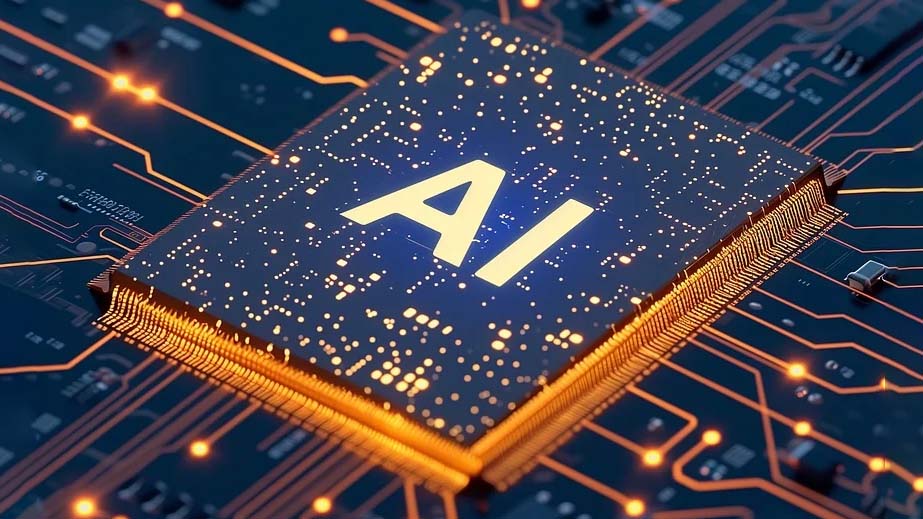
• Best AI laptops
• Best Copilot+ PCs
• What is an AI PC?
• What is an AI-boosted NPU?
• Why is TOPS important for AI?
That all said, it's important that big tech manufacturers do everything in their power to keep these AI models and technologies safe and secure for users. This means these companies need to analyze their AI models and continue to put specialized protocols and security checks in place. It's equally, if not even more important, that companies work together across ecosystems to make sure user data is private and secure even when shared or interacting with other companies' AI models and ecosystems.
There will always be some companies that cut corners, as well as shady third parties that create AI devices without care for user privacy or security. So it's important that trusted first-party companies step up and do all they can to protect their users. In the end, choosing the best AI PC will be synonymous with choosing the safest devices available to us.

Self-professed gaming geek Rebecca Spear is one of Windows Central's editors and reviewers with a focus on gaming handhelds, mini PCs, PC gaming, and laptops. When she isn't checking out the latest games on Xbox Game Pass, PC, ROG Ally, or Steam Deck; she can be found digital drawing with a Wacom tablet. She's written thousands of articles with everything from editorials, reviews, previews, features, previews, and hardware reviews over the last few years. If you need information about anything gaming-related, her articles can help you out. She also loves testing game accessories and any new tech on the market. You can follow her @rrspear on X (formerly Twitter).
